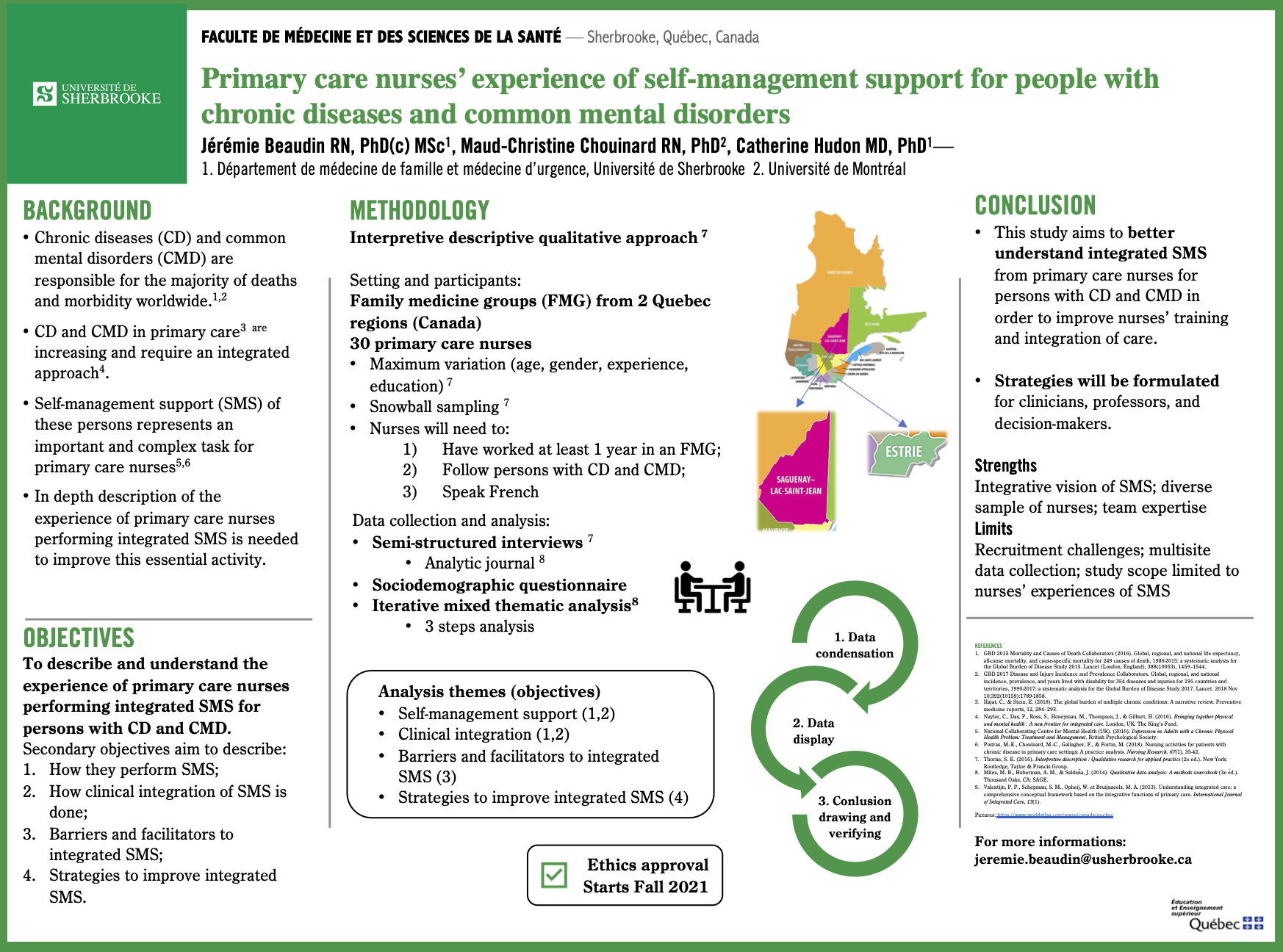SRFP081: Primary care nurses' experience of self-management support for people with chronic diseases and common mental disorders
Jeremie Beaudin, MSc, RN; Maud-Christine Chouinard, PhD, RN; Catherine Hudon, MD, PhD
Abstract
Objective: Main objective of this protocol: to describe and understand the experiences of primary care nurses performing integrated SMS for persons with CD and CMD. Secondary objectives aim to describe 1) how they perform SMS; 2) how clinical integration of SMS is done; 3) barriers and facilitators to integrated SMS; and 4) strategies to improve integrated SMS.
Study Design: Interpretive descriptive qualitative approach will be used.
Setting or Dataset: Family medicine groups (FMG) from 2 Quebec regions, Canada.
Population Studied: A diverse sample of 30 primary care nurses will be recruited using maximum variation and snowball sampling. To be included, nurses will need: 1) to have worked at least 1 year in an FMG; 2) to follow persons with concurrent CD and CMD; and 3) to speak French. Many strategies will be used to contact the participants.
Intervention/Instrument (as pertinent): Data collection will be done using semi-structured interviews of 60-90 minutes in person or virtually. The interview guide will consist of open-ended questions and follow-up questions based on the objectives, the results of a scoping review and Valentijn’s Rainbow Model of Integrated Care. A sociodemographic questionnaire will be administered, and a reflexive journal will be kept. Miles et al. iterative mixed thematic analysis method will be used for data analysis.
Results or Anticipated Results: This study aims to better understand how integrated SMS from primary care nurses for persons with CD and CMD is done to improve the initial and ongoing training of nurses and improve integration of care. Barriers and facilitators to integrated SMS will be described at many levels and strategies will be formulated for clinicians, professors, and decision-makers.
Conclusions: This qualitative study will describe and understand how integrated SMS is done by primary care nurses in Quebec and will reveal barriers, facilitators, and strategies to improve care integration for this clientele.

Catherine Hudon
catherine.hudon@usherbrooke.ca 11/20/2021Bravo Jérémie! Bon NAPCRG : )